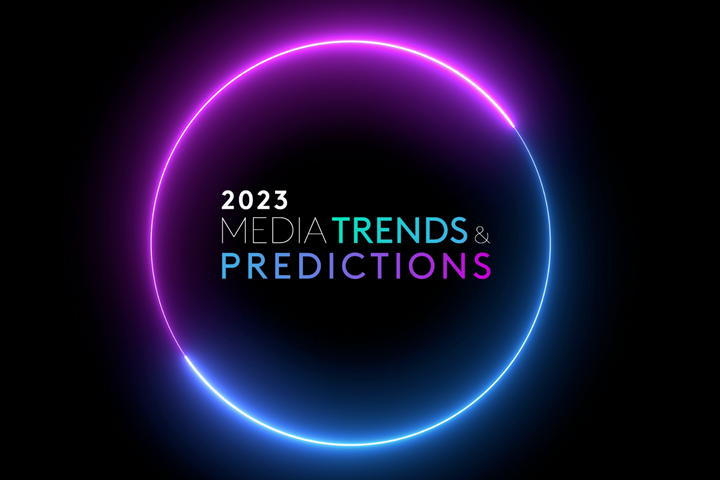Sustainability-themed marketing is uniquely complex, but its importance cannot be underestimated. Despite flaws and setbacks, and against a backdrop of economic uncertainty and unprecedented extreme weather, the world is aiming to transition towards net zero, and businesses will be crucial in achieving that goal.
A green global economy
A brand’s messages, products and services will play significant roles in helping change behaviours, promote more sustainable lifestyles and ultimately grow and sustain a green global economy.
Our research shows that consumers across the world care deeply about the planet’s interlinked social and environmental issues, are willing to change their purchasing behaviours. And they expect corporations to take responsibility and to act.
In fact, many people feel they can make a difference through the choices they make. Around 50% say they’re prepared to invest time and money to support companies doing the right thing; and 42% have voted with their wallets, no longer buying products and services because of their environmental impact.
2023 should therefore be seen as a year of innovation – whether that’s brands offering greener products and services, media owners offering more energy-efficient services, or agencies rethinking how their planning and buying strategies are impacting the climate.
The value-action gap
Sustainability is now a business imperative, but it’s not always easy to reach consumers. As Kantar’s research shows, there’s a ‘value-action gap’ – a disconnect between green attitudes and real-world behaviours. Simply put, most people don’t need to be convinced about the importance of sustainability issues – it just doesn’t always carry through into their behaviour.
There are several reasons why this might be the case for green products and services, from issues of convenience, availability or price, to perceptions of quality. This means green advertising will require deeper audience insights so brands can better judge an audience’s responses to sustainability messaging, which will be affected by economics, culture, political values and age.
And there are further challenges. Given the necessity of the task, sustainability marketing is made even more difficult because it needs to reach and have a positive effect on practically all audiences – we can’t just rely on selling to a small and engaged cohort if we’re to witness significant global change.
But some people are extremely hard to reach, and with sustainability being dragged into the culture wars, additional complications arise as the road to net zero becomes politicised. This means, for some audiences, sustainability messaging may even need to be camouflaged by selling adjacent benefits to the most hard to reach.
Understanding real-world barriers and emotional response
Whatever tactic marketers choose, data and insight will always remain the best starting point. Closing the value-action gap means understanding the real-world barriers that different audiences face when making purchase decisions, and audience insight can shine a light on little understood or emerging drivers to action.
As the cost of living crisis bites, there’s growing evidence consumers are changing their shopping habits, increasing brand repertoire, and experiencing trade-offs in their purchasing decisions and dilemmas. And according to Kantar’s TGI data, there has been a 10% fall in the first six months of 2022 in all adults in Great Britain agreeing that ‘it is worth paying more for environmentally friendly products’.
With the threat of recession looming globally, brands will need to balance messages of value with sustainability, and consider how to manage complex consumer anxieties over costs. Longer term, however, there needs to be a general de-premiumisation of green products to unlock a mass market opportunity – something marketers should begin thinking about today.
Understanding emotional response is also extremely important. Using Affectiva’s facial coding technology to record people’s emotional responses to ads in Kantar’s extensive Link database, we see how sustainability messages can evoke a range of strong feelings, from inspiration and hope, to guilt and sadness.
What we learned is that guilt is not a useful lever for inspiring positive behaviour change, but empowerment and hope are. Humour is also a powerful tool – when used correctly – whereas sadness can lead to apathy.
So it’s clear that sustainability campaigns perform better if they don’t simply dwell on the challenges, but leave people with a more inspiring and positive view of how change may be encouraged.
The power of creative testing
For this reason, creative testing is an extremely powerful tool to ensure campaign messages evoke the emotions that will lead to the intended behaviour change.
Coupled with behavioural science techniques, we know that the levers that can help boost positive behaviour changes include showing the implementation of green intentions, human connectivity towards nature, a sense of individual control, and a demonstration of immediate rewards.
This is just a snapshot of what there is to learn about sustainability marketing, but what we do know, and what will always remain fundamental, is consumers will demand authenticity. Brands must practise what they preach. So they must also understand the attitudes of their audience – in full recognition that every consumer is on a different path, but it’s a journey we all have to take.
Discover more on what we believe is next for the media and marketing industry by downloading our latest Media Trends & Predictions Report.
A green global economy
A brand’s messages, products and services will play significant roles in helping change behaviours, promote more sustainable lifestyles and ultimately grow and sustain a green global economy.
Our research shows that consumers across the world care deeply about the planet’s interlinked social and environmental issues, are willing to change their purchasing behaviours. And they expect corporations to take responsibility and to act.
In fact, many people feel they can make a difference through the choices they make. Around 50% say they’re prepared to invest time and money to support companies doing the right thing; and 42% have voted with their wallets, no longer buying products and services because of their environmental impact.
2023 should therefore be seen as a year of innovation – whether that’s brands offering greener products and services, media owners offering more energy-efficient services, or agencies rethinking how their planning and buying strategies are impacting the climate.
The value-action gap
Sustainability is now a business imperative, but it’s not always easy to reach consumers. As Kantar’s research shows, there’s a ‘value-action gap’ – a disconnect between green attitudes and real-world behaviours. Simply put, most people don’t need to be convinced about the importance of sustainability issues – it just doesn’t always carry through into their behaviour.
There are several reasons why this might be the case for green products and services, from issues of convenience, availability or price, to perceptions of quality. This means green advertising will require deeper audience insights so brands can better judge an audience’s responses to sustainability messaging, which will be affected by economics, culture, political values and age.
And there are further challenges. Given the necessity of the task, sustainability marketing is made even more difficult because it needs to reach and have a positive effect on practically all audiences – we can’t just rely on selling to a small and engaged cohort if we’re to witness significant global change.
But some people are extremely hard to reach, and with sustainability being dragged into the culture wars, additional complications arise as the road to net zero becomes politicised. This means, for some audiences, sustainability messaging may even need to be camouflaged by selling adjacent benefits to the most hard to reach.
Understanding real-world barriers and emotional response
Whatever tactic marketers choose, data and insight will always remain the best starting point. Closing the value-action gap means understanding the real-world barriers that different audiences face when making purchase decisions, and audience insight can shine a light on little understood or emerging drivers to action.
As the cost of living crisis bites, there’s growing evidence consumers are changing their shopping habits, increasing brand repertoire, and experiencing trade-offs in their purchasing decisions and dilemmas. And according to Kantar’s TGI data, there has been a 10% fall in the first six months of 2022 in all adults in Great Britain agreeing that ‘it is worth paying more for environmentally friendly products’.
With the threat of recession looming globally, brands will need to balance messages of value with sustainability, and consider how to manage complex consumer anxieties over costs. Longer term, however, there needs to be a general de-premiumisation of green products to unlock a mass market opportunity – something marketers should begin thinking about today.
Understanding emotional response is also extremely important. Using Affectiva’s facial coding technology to record people’s emotional responses to ads in Kantar’s extensive Link database, we see how sustainability messages can evoke a range of strong feelings, from inspiration and hope, to guilt and sadness.
What we learned is that guilt is not a useful lever for inspiring positive behaviour change, but empowerment and hope are. Humour is also a powerful tool – when used correctly – whereas sadness can lead to apathy.
So it’s clear that sustainability campaigns perform better if they don’t simply dwell on the challenges, but leave people with a more inspiring and positive view of how change may be encouraged.
The power of creative testing
For this reason, creative testing is an extremely powerful tool to ensure campaign messages evoke the emotions that will lead to the intended behaviour change.
Coupled with behavioural science techniques, we know that the levers that can help boost positive behaviour changes include showing the implementation of green intentions, human connectivity towards nature, a sense of individual control, and a demonstration of immediate rewards.
This is just a snapshot of what there is to learn about sustainability marketing, but what we do know, and what will always remain fundamental, is consumers will demand authenticity. Brands must practise what they preach. So they must also understand the attitudes of their audience – in full recognition that every consumer is on a different path, but it’s a journey we all have to take.
Discover more on what we believe is next for the media and marketing industry by downloading our latest Media Trends & Predictions Report.


